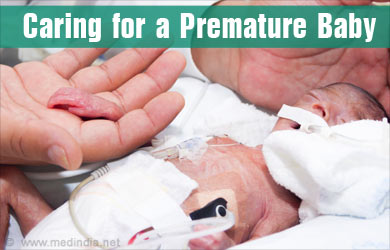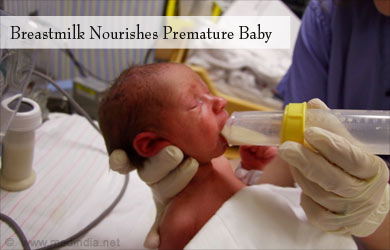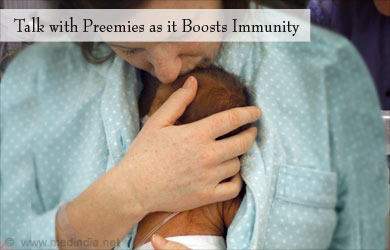- Taking Your Preemie Home - (http://kidshealth.org/parent/pregnancy_center/newborn_care/preemie_home.html)
- Caring for a Premature Baby: What Parents Need to Know - (https://www.healthychildren.org/english/ages-stages/baby/preemie/pages/caring-for-a-premature-baby.aspx)
- Feeding tube - infants - (https://www.nlm.nih.gov/medlineplus/ency/article/007235.htm)
- Your Baby, Jaundice, and Phototherapy - (http://www.med.umich.edu/1libr/pa/umphototherapy.htm)
- Care For The Premature Baby - (http://americanpregnancy.org/labor-and-birth/premature-care/)
- Infant and toddler health - (http://www.mayoclinic.org/healthy-lifestyle/infant-and-toddler-health/in-depth/premature-baby/art-20046286)
What is Premature Birth?
A baby born alive before 37 weeks of pregnancy period is termed premature, “preemie” or as preterm birth. In such cases, the joy of birth is often over-shadowed by the mother’s fear and nervousness in caring and worrying about her baby. The earlier the baby is born, the more the risk of complications. The preemie will require special care in a neonatal intensive care unit (NICU) in a hospital where the baby will be kept in an incubator and fed via tube feeding.
This phase is difficult for the parents especially the mother who looks forward to holding, spending time, feeding and wants to bond with her little one. However, if the doctor permits, the mother may be able to spend time with the baby. If the baby is stable and strong enough to suck, breast-feeding or bottle feeding can be initiated. Preemies are allowed to go home when they are stable; that is they can breathe on their own, can maintain normal body temperature, can breast/bottle feed, they are gradually gaining weight and are free of any infection.

In few cases, a preterm baby can be sent home without meeting anyone of these criteria. It depends on the child’s medical team and family to decide whether the baby is ready to receive care and monitoring at home.
Challenges of a Premature Baby
A premature baby may not look or respond like a baby with a normal delivery. Most preemies weigh around 2.5 kg or even less while a normal infant weighs around 3 kg. However, medical technologies have made it possible for babies having birth weight more than 1 kg to survive. The symptoms of premature baby are as follows:
- The skin is usually wrinkled, transparent, soft, smooth and shiny showing up blood vessels within the skin
- Low body temperature and under-developed features
- Undescended testicles and small scrotum with no ridges
- Soft and smooth ear cartilage
- Less muscle tone and less activity as compared to a full-term baby
- The baby may cry softly or may not cry at all
- The infant may have breathing issues because of the immature respiratory system and will require temporary breathing support
- There will be fine hair all over the body (lanugo)
- The infant will lack reflexes for sucking and swallowing resulting in feeding problems
- Presence of yellow skin (Jaundice)
- Low birth weight
- Anemia
Caring for the Premature Baby
A premature baby requires special care and attention in an NICU as well as at home.
Understand the Requirements of the Baby in the Hospital: Check with the doctors and nurses on the current condition of your newborn and ask questions and clarify your doubts. The more information you have, the better prepared you will be to help your child. Get to understand the various monitoring systems in the NICU. Find out if the baby is breathing on her own and for what else the baby is being monitored for. Some babies are placed in an incubator to keep them warm and prevent respiratory infections. Babies with jaundice are usually treated with phototherapy. The baby is lightly dressed with a soft eye mask and kept under a special light. Sometimes if phototherapy treatment is not responding, then the baby may need a blood transfusion (also known as exchange transfusion) to clear jaundice. If jaundice is due to rhesus disease, then intravenous immunoglobulin (IVIG) and phototherapy are used. Update yourself regularly on the baby’s progress. Observe the baby frequently and if you notice an abrupt change in the condition, then alert the medical team immediately.
Breast Milk: Breast milk is the best source of proteins, which fortify and fight infections. While the preemie might not be able to suck or use a bottle, there are other ways of feeding breast milk. Some hospitals ask the mother to pump breast milk which is later tube fed to the preemie. Check with the doctor if the baby is being fed with other supplements also. Breast milk can protect preterm infants from urinary tract infection, intestinal disease.

Contact with the Baby: With the medical team’s permission, take part in your baby’s care, start by establishing physical contact. Even preemies respond positively to the mother’s touch and this helps in healing faster. Take part with other nurses in changing and cleaning your newborn. If the baby is in the incubator and attached to tubes and wires, check with the nurse on the best and safest way of touching and holding the baby. Visit and touch your baby frequently. Speak few sweet words to the baby. Later on, an NICU staff will help you carry your baby in a method known as “kangaroo”, which involves direct skin to skin contact. In a recent study by American Academy of Pediatrics, it was found that direct skin contact between the mother and the child reduces the risk of death and increases weight gain in premature babies.
This phase may be difficult for the parents, especially the mother, however understand that this is a temporary phase and you will soon be taking your baby back home.
Bringing the Baby Home: Bringing back a preterm baby home depends on many factors, but as a general principle, a premature baby who is healthy can be allowed to go home nearly at the same time of the original due date. Before discharging the baby, doctors will make sure that the baby is stable. They will see if the child is breathing on its own, is maintaining a steady body temperature, is breast/bottle feeding, not dependent on intravenous (IV) drip, gaining weight, having normal activity and sleep. It is normal to feel excited and anxious while taking your child home and also because you are now on your own without the medical team. Before you leave the hospital, thoroughly learn how to care for your baby especially if the baby still needs oxygen or tube feeding. Check on the required diet, feeding instructions, vaccinations, cleaning procedures and keeping the baby comfortable. Ask the medical team’s advice on the best possible way to take your baby home; whether you need to use a car seat or keep the baby cradled in your arms. The baby will have to be monitored for oxygen levels and heartbeat before leaving the hospital.
Preventing Infections: Preemies are more prone to infections than normal infants. This is because their immune systems are not fully mature and functional. Some preterm babies acquire infections after birth due to various factors. A premature child may pick up an infection from the neonatal care unit because of various interventions like tube feeding and IV lines. The doctors and specialists will determine what treatment should be given for the infection depending on its origin – whether it is bacterial, fungal or viral.
Maintain stringent hygiene at home to avoid infections. Always wash and disinfect your hands before touching the baby, also see that others do the same. Keep your little one in a room with good sunlight and sufficient ventilation. Ensure clean bedding and accessories. Frequently change the diapers to avoid urinary infections. You may need to choose a safe insect mosquito repellent (herbal) to keep your newborn from being bitten by mosquitoes. Keep the baby’s feeding bottles and other utensils in a separate and clean place and sterilize bottles timely. Take care while bathing and cleaning the infant and use only lukewarm to mildly hot water and mild soap. Moisturize the baby’s skin using a moisturizing lotion.
Change your baby’s clothes at least twice a day. Make sure no pets or people with infections are in contact or nearby the baby. Do not take your child outside or to crowded places until the immune system is strengthened. Cradle the baby often, talk to your child and establish a bond. This type of contact also impacts the immune system positively. If you have any concerns regarding your baby, then contact your doctor or visit any nearest hospital in case of emergency.

Remember your preemie will require extra care and caution until a year or so. Regularly schedule follow-ups, appointments with the doctor and medical team to check on the baby’s progress. With proper care and feeding, the baby will soon grow up normally and healthy.







